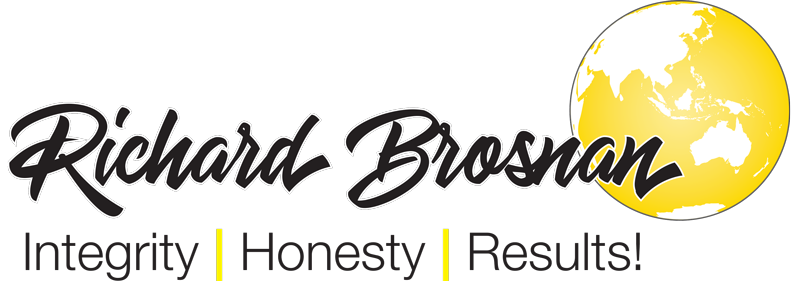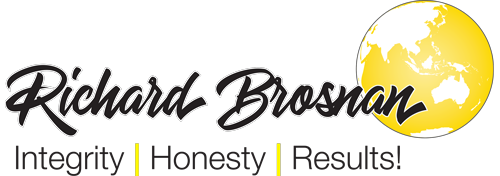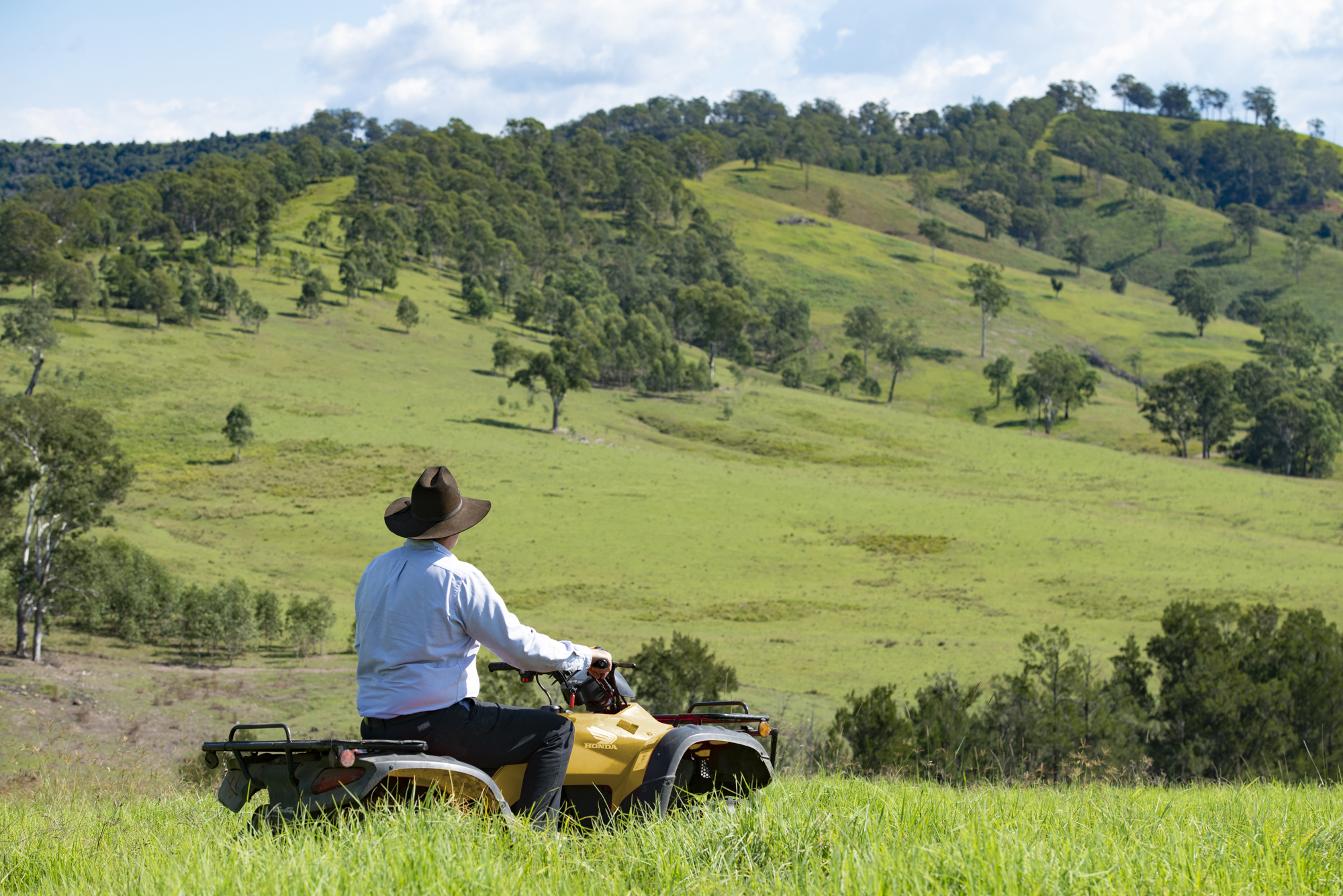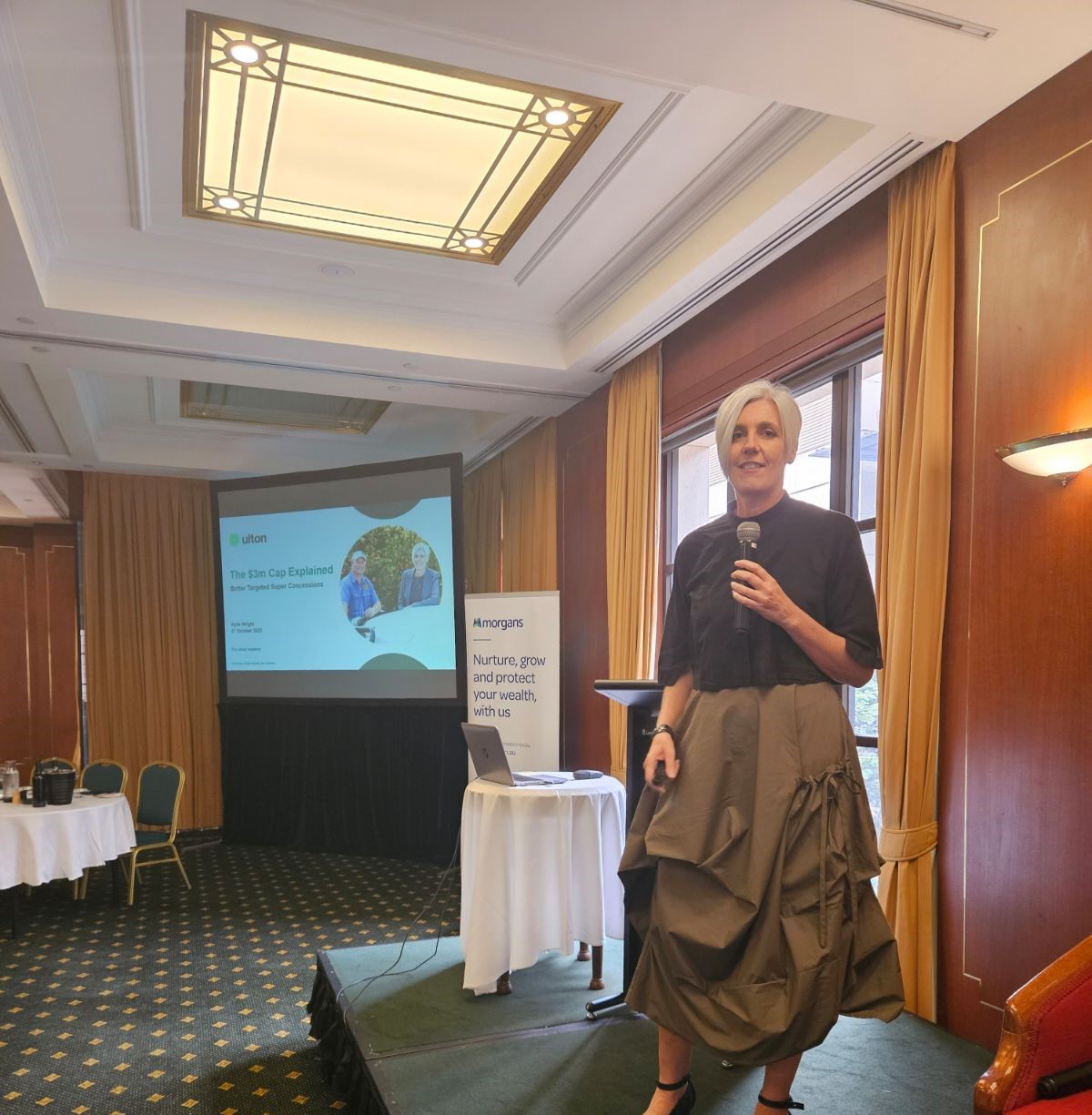Four things to consider before signing a third-party lease - April Newsletter 2023
In this newsletter, Ray White Rural Rockhampton Director Richard Brosnan introduces things to consider when you’re thinking of leasing your land to a third party. Renewable energy leases are one of the more well-known forms of sustainable energy leases and the example we’ll use as we talk more about third party leases throughout this month’s newsletter. Including comments from Will McLay (Director – RQ, AAPI – Certified Practising Valuer) – Heron Todd White and Gordon Stunzner (Director) – South Geldard lawyers.
Four things to consider before signing third-party leases over rural land
Land leases for renewable energy (RE) production have a seemingly obvious upfront financial benefit for property owners if they are developed. However, it’s important to consider the following:
- impact on the productivity of your core business
- any restrictions to your operations and business
- long-term value of your property
- financial implications to your net profit; if the deal isn’t structured correctly
Another point to consider is who is responsible to decommission the infrastructure? and any environmental implications including rehabilitation of the area.
Before you sign a leasing agreement consider:
- What do the lease terms mean to you and your rural business’ productivity?
The terms in a renewable energy lease agreement can be very broad. It’s critical to drill down to the finer details and make sure you understand them fully.
Is the RE company requesting access to your whole property or part? Does the length of the lease stop you from developing or improving your property or business? Will productivity be affected and is there little chance the RE project will even begin? If the RE company is taking a long term ‘option’ to lease the property for a future renewable business that ‘may’ eventuate, will that affect your chances of selling the property later?
That’s a lot of questions but it’s important to ask them.
- What are the financial implications? Will a third-party lease have tax implications?
If you’re already running a business from your rural property and you add carbon, solar, wind or other RE farm, will that be considered personal income? If so, what are the tax implications to your situation? Will there be a capital gains tax implication? Or land tax issues? Technically if you’re leasing part of your property, could it be deemed as segmenting the land for non-rural returns. You’re saying it’s only a small area not the whole property the RE company is leasing. Consider the overall potential tax issue.
- Will the third-party leases affect the value of your property?
If you’re segmenting the land, will that affect the value of your property? Renewable energy leases become a condition of the property ownership. They may want to use the whole property and place a caveat over it. Check with your bank to see if their okay with caveats over your land. Many banks don’t like caveats as a rule.
- Will you need to decommission equipment or rehabilitate land at the end of the partnership?
Biodiversity offsets and carbon systems will have environmental management conditions. Renewable industry opportunities require the installation of significant infrastructure on your property. It’s a good idea to check who will maintain the infrastructure and how often? What is the life span of the materials involved? and who will decommission the infrastructure, remove it and restore the land?
What next?
As Government works toward zero emissions by 2050 the need for land to install renewable infrastructure will continue to rise.
If you’re considering leasing your land for renewables make sure you know the questions to ask. Get the professional advice you need from your accountant, solicitor and/or valuer before you sign before you sign any Renewable Energy Lease Agreement. Time and money spent getting the details right on a renewable energy lease or contract now could save you many complications later, should you sell the property or want to improve it. Make sure that a third-party lease suits your financial and tax position.
Will McLay (Director – RQ, AAPI – Certified Practising Valuer) – Heron Todd White,
To get his take on third party leases over rural properties and their effect on the value of your property. Heron Todd White Website
Will McLay, Heron Todd White:
It’s very specific to the individual property and the terms of the lease agreement. Ultimately it is important that the income from the lease is enough to offset a reduction in market value created by the existence of the infrastructure and associated activities. Some agreements offer larger payments upfront; others extend the income stream across the life of the project. Income might also be linked to the performance of the project (ie how much the wind blows or sun shines). If the project’s footprint is small and the income received well exceeds your primary production activities, there might be a positive impact to the property’s market value. The opposite could also apply.
Is there a type of lease structure that you would recommend for third party leases?
Generally, an ongoing income stream for the life of the project would be better than taking a ‘front loaded’ payment. Ongoing income from the project would support the property’s value and market appeal (assuming the ‘rent’ is at market). There also needs to be an indexation mechanism within the lease agreement. Consider also, there’s some risk that over the term of the 20 or so year lease this mechanism may not maintain relativity with the value of the asset. For example, CPI averaged 2.7% P.A. between 2000 and 2022 while the Queensland rural land index grew at a rate of 9% P.A. over the same period.
Is the sale price of a property affected by a third-party lease over the land?
There aren’t many recorded sales of rural land sold with renewable leases in place. It’s likely this market will become more defined in the short term with the expansion of the renewable industries. One market example is Dubbo Station (Darling Point NSW) which sold in 2021 it was a 14,875ha rural property with a 593ha solar farm development and the lease was for 35 years. If you break down the sale, there was a discount rate applicable to the income stream (in isolation to the property value) that was around 9%. That’s broadly in line with regional commercial investments with a comparable risk profile at the time.
Gordon Stunzner (Director) South Geldard Lawyers,
Gordon Stuntzner to look at a legal perspective on third party leases over rural properties.
Renewable Energy leases are set to become more prevalent as part of the de-carbonising of the economy that’s emerging. The Federal Government’s greenhouse emission reduction targets have corporations of all sizes tuned into the best pathway towards a post carbon economy.
We’ve seen a significant move towards renewable energy projects in Central Queensland including wind and solar farms. Another emerging trend is increasing interest in carbon farming. It’s as part of the Queensland Carbon Farming Initiative under the guidance of the Clean Energy Regulator and part of a move by Governments and
communities towards ESG (“Environmental Social and Governance”) markers for business. The move towards ESG standards for industry will only enhance and accelerate the move towards clean energy. The direct financial returns of setting ESG values and standards may not be obvious at first but, over time, it may be necessary to demonstrate your credentials to investors and lenders to achieve market access. That will be an interesting evolution in the clean energy and third-party lease industry for rural properties in the next few years.
Although the majority of operations in Central Queensland would not be directly affected by renewable energy leases, it is becoming more common. We’re fielding more enquiries daily. There are several renewable resource organisations (RROs) offering “exclusivity” third party lease arrangements for a modest fee. This lets them tie up land areas for future negotiations and to lock out other RROs from rural properties. It’s important to carefully
considered these arrangements because they can significantly limit the ability of landholders to assess and accept different RRO offers and deals that may emerge as the sector grows.
How will the Solar and Wind Farms impact your land?
Solar farms and wind farms are very different beasts in terms of their direct impact on the land.
Solar Farms
A solar farm generally requires exclusive possession of the land to position the panels due to the number and lay out of the panels required to generate the volume of energy required for projects. The result? Large areas of land with solar panel coverage and significant shade on rural land that could impact pasture productivity.
Some studies indicate that in certain circumstances there could be a beneficial impact to rural properties. However, in Central Queensland it’s likely that the land hosting a solar farm lease would be locked out of cattle production and certainly any broad scale farming operations. You might be able to run sheep under the solar panels, but not if you live in an area where black spear grass pastures is prominent.
If a landholder is approached by an RRO, one of the most important things to keep in mind is, no matter how lucrative and attractive the deal may seem, an option to lease does not guarantee that the project will ever go ahead and that you will receive ongoing lease payments. Conversely, if the project does get off the ground, a wind or solar farm can represent a significant income stream for many years to come.
What are the risks of a third-party lease?
Negotiating RRO contracts
RISK
Out of pocket legal and professional fees
At the start of negotiations, it’s important to discover what an RRO is willing to pay towards the rural landholders legal and other professional fees to set up a project AND you don’t want to be left significantly out of pocket if negotiations terminate and the project doesn't go ahead. Consider if you can afford that risk.
RISK
Negative impact on land quality
Reduced area for farming
Insolvency, decommissioning and restoration
Most landholders are across the risks to rural property from RR projects including; biosecurity and disruptions to cattle production systems. These are often front of mind when the negotiations commence. If the RRO project gets up and the dollars start to come in, it is easy to forget that, like all infrastructure, these projects will have a set lifespan.
Consider what will happen at the end of the lease or worse, if the RRO becomes unexpectantly insolvent part way through the lease. It would be a disastrous outcome for a landholder if their land is tied up under solar panels or wind turbines without any rental income, and the land is unsuitable for cattle production or farming.
From the beginning of the RRO leasing negotiations, ensure that there are securities or other mechanisms put in place for decommissioning and restoring the land to a usable state at the end of the lease. As with any commercial relationship, do your due diligence so you’re aware of the RRO’s experience and financial credentials. There are other risks to consider.
RISK
Lessor may change
The number of speculative RROs tying up land in a strategically important geographical areas is set to increase. Be aware, the RRO or persons’ who lease your land might not be who you deal with for the life of the project. Once a RRO secures rural land for leasing they may take the project to market on selling the lease and the entire project to a more experienced project manager. The result of this? Landholders face the prospect of working with an unknown party for construction and production phases of the project.
RISK
Rent is not paid
One of the biggest risks a landholder faces with a lease is that rent is not paid. Consider how you’ll recover rent arrears and at what point you trigger proceedings to take back control of your property and how you will pay for legal process.
The exact nature of negotiations will depend very much on each of the projects themselves and the RRO behind them.
RISK
Third party leasing could trigger a change of use
What about the unintended consequences? Taking on a RR lease may trigger a change of use to the land area where the infrastructure is installed. In Queensland and other states in Australia, there are concessions relating to GST, stamp duty, land tax and capital gains tax for primary production businesses. If the main purpose of the land shifts from primary production to electricity generation, these matters can affect and expose landowners to unanticipated costs.
The wrap up from South Geldard Lawyers Director Gordon Stunzner
In some situations, a renewable energy lease may not be appropriate. If it doesn’t fit with your values – whether they are aesthetic, environmental or other values – don’t sign it!
In any rural lease, property owners give up significant rights to control their land and a tenant or lessee under these arrangements is entitled to “quiet enjoyment”. That means landowners can’t interfere with a tenant and its operations (provided they comply with the terms of lease). If that doesn’t sit well with you as a landholder, the lease isn’t right for your property.
Even if the right to graze cattle is retained there will likely be covenants written into the lease to allow contractors and other third parties to enter the land. The result? During the possibly, 30-year construction, operation and maintenance phase of a wind, solar or other renewable energy leases, people will have the right to enter and leave your property.
Think carefully whether the income derived from the renewable energy lease is enough to offset the loss of privacy and in production that could happen when construction begins and the RR production phase starts. Make sure you incorporate lease payment increases in line with inflation, market forces and improvements in technology. The impact and cost of a RR lease over your property may well be offset by the benefits of the additional 15-30 years of income. Each RR lease offer will be different. If the project does align, work closely with your accountant, solicitor, bank and valuer to get the best outcome from the RR lease and project.
The renewable energy sector is constantly evolving. It’s likely to be a very different landscape in five to 10 years’ time. As with any new and emerging sector and its technology, it’s important to get the right advice from experts with right knowledge and know-how and keep up with changes in the area is essential.
If you’re looking at renewable energy, carbon farming or ESG for your land or business, look all aspects of the proposed project to make sure you get the maximum value out of the deal. Don’t be left holding the baby at the end of the lease term with a stranded asset or having to spend millions of dollars to regenerate the land or get back to a stage where it can be used for its original purpose.
The wrap up from Ray White Rural Rockhampton Director, Richard Brosnan
It’s important your professionals work as a team to deliver the best outcome for you when you’re selling your life’s legacy.
If you are considering selling your property and would like to discuss your options call Ray White Rural Rockhampton Director, Richard Brosnan for a confidential chat or appointment on 07 4922 5211 or 0400 361 114




